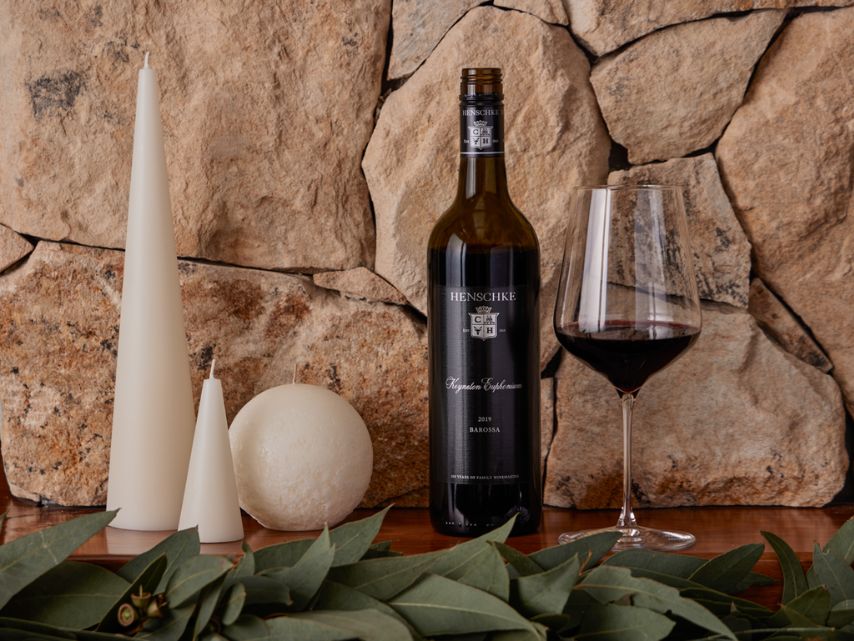The Henschke Family Legacy
One of the leading pioneers of the Barossa Hills’ village of Keyneton, was sheep farmer Joseph Keynes in 1842, the village was also a musical and cultural focus for early settlers, and home to the Henschke Family Brass Band and Henschke winery. The Henschke Family Band was founded in 1888 by second-generation winemaker Paul Gotthard Henschke and later led by third-generation winemaker Paul Alfred Henschke, featuring wonderful wind instruments such as a B flat euphonium, cornet and E flat clarinet. The B flat euphonium, a large brass wind instrument, was imported in the late 1800s from Germany, and was lovingly restored to remain in the care of the Henschke family.
Evolution of Henschke Wines
First labelled as 'Henschke Dry Red’ in 1958, fourth-generation winemaker Cyril Alfred Henschke wanted to create a full-bodied, yet approachable Shiraz to complement his single-vineyard Shiraz wines. In 1967, following the trend of the day, Cyril made use of European references and renamed the wine 'Henschke Hermitage' for a more premium positioning of the high-quality Shiraz. In 1972 the name evolved yet again to 'Henschke Keyneton Estate' after Cyril’s native village of Keyneton, a move away from earlier European references. In 1980 Stephen Carl Henschke, fifth-generation winemaker, and his viticulturist wife Prue, included Cabernet Sauvignon and Malbec in the Shiraz blend, creating a more savoury and food friendly wine, and in 1999, replaced the Malbec with Merlot, which was more reliable and provided lovely texture and softness on the palate. Increased focus in the history and heritage of the Henschke family inspired Stephen and Prue to change the name to 'Keyneton Euphonium' in 2001.

The Vineyard and Winemaking Process
Fifty-year-old, predominantly dry-grown Shiraz is the heart of the KeynetonEuphonium blend, grown in the Henschke Eden Valley vineyard, once an old dairy and sheep farm. The vineyard is located in the central Eden Valley, just above the Barossa Valley. Cyril Henschke purchased the property in 1966 and planted primarily Riesling, Shiraz, Semillon and Cabernet Sauvignon. These vines were planted on a range of well-drained duplex soils including sandy loam over gravel, bedrock with patches of clay and sandy loam over clay. Organic and biodynamic practices include a wheat straw mulch used under the vines to retain soil moisture, build up organic matter and inhibit weed growth, as well as biodynamic preparations and sprays. Old vines of Shiraz, Cabernet Sauvignon, Cabernet Franc and Merlot grapes grown on Henschke’s Eden Valley vineyard and growers’ vineyards in Barossa and Eden Valleys make up the final blend. Parcels of grapes are hand-harvested, then de-stemmed and lightly crushed into the historic, concrete, open-top fermenters, before being ‘punched-down’. After approximately 7–10 days and just prior to reaching dryness, the fermentations are gently pressed to barrel with the primary fermentation finishing in 80% French and 20% American oak (17% new and 83% seasoned) hogshead barrels. The wine matures for 18 months before assemblage and bottling and remains in bottle for two years before release.











